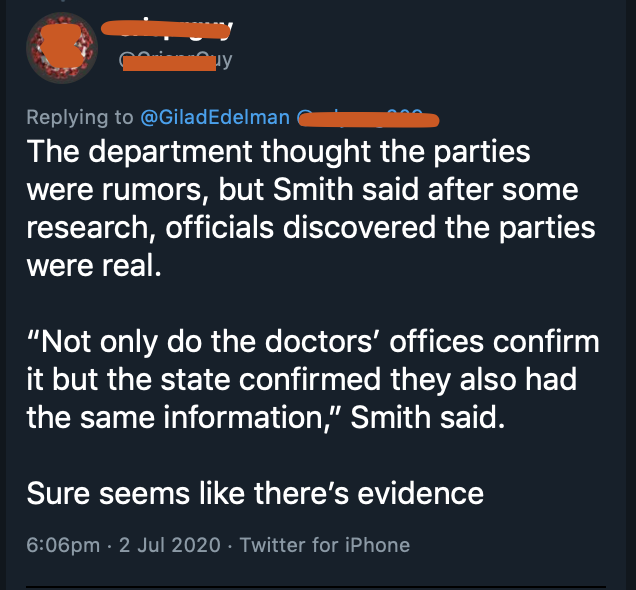Let’s talk about media literacy for just a sec. First, read the attached tweet - responding to the Wired reporter who wrote that no, there is no evidence that Tuscaloosa was ripe with COVID-19 parties. (Story here: https://j.mp/2ZzAN47 )">https://j.mp/2ZzAN47&q...
I saw the same quote this morning, and that is what convinced me it was hype. But this reader (let’s assume an honest broker) read them as proof. First, CNN failed here to do actual journalism. But second - crazy that two people can interpret a detail so differently.
But I read those details (the only ‘evidence’ in the story) as proof of the absence of actual concrete details. Like - the name and comments of someone who actually attended, or even from a doctor who treated an attendee.
A skeptical journalist sees the quote and reads it as: a single city council member believes something based on hearing it from the fire department who maybe heard it from a doctor or some unclear and unnamed state official. It is hearsay about a rumor about an urban myth.
But a reader sees it and thinks, well the city council member confirmed it. So who’s job is it to keep them from jumping to that really incomplete assumption? Clearly we need people to take media literacy classes!!!
No. We need journalists not to write poorly sourced articles founded on entirely unproven assertions. Or if you are going to cover it (everyone is talking about it!) just make it clear there is no evidence to back up the claim.
Right now the story gets 200,000 results on Google News. So congratulations to all involved for contributing to the infodemic today. Great job everybody.
On the off chance this get some sourcing and substantiating evidence tomorrow - great, report on it. That does not excuse the hash we made of it today pre-evidence.

 Read on Twitter
Read on Twitter


